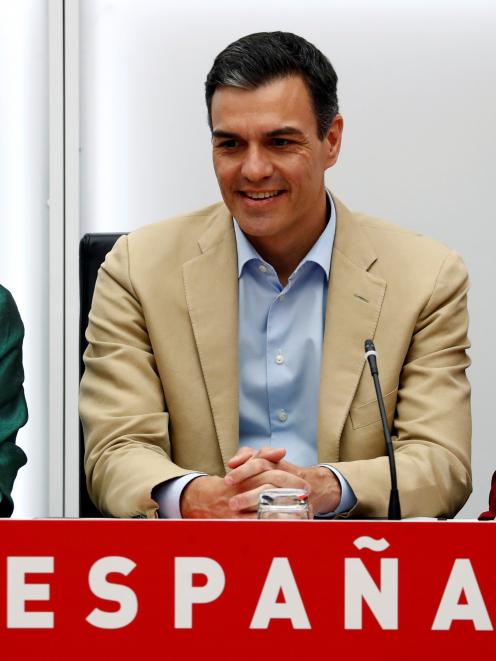
And as one commentator put it: "pro-Europeans everywhere can rest easy with the result of the legislative elections in Spain".
This is against a background where the far-Right has made progress across much of Europe and when European Union elections are due late this month. The progress, or lack thereof, in the march of the Right will be watched closely in that poll.
Right-wing populist and nationalist parties have been advancing in Europe, often exploiting immigration, anti-Muslim and social conservative issues. The Austrian Freedom Party, as a junior partner, became the first far-right party to share power in Western Europe, in 2017. A populist coalition took the reins in Italy last year, and even in Finland an anti-immigrant and Eurosceptic party recently won 17.5% of the vote. France, Britain, Germany, Sweden and most of Europe each have their equivalents.
Elements in some of these parties are attempting to promote a pan-European power bloc. They want to increase their representation in the European Parliament.
Many of the headlines before the Spanish election were about the nationalist Vox Party and the Right. Among Vox's rallying cries was the call to "make Spain great again". Although Vox succeeded in entering the legislature, with 24 seats, the main conservative body, the Popular Party, was hammered, returning just 66 seats compared to 137 in 2016. This was humiliating for the party which led the government from 2011 to last year.
Spain's election is a reminder that each country has its dynamics, in this case the election being complicated by the Catalan independence push. Spain's time under fascist military dictator Francisco Franco is also within living memory - he died in 1975 - and the scars from the vicious Left/Right civil war of the late 1930s remain deep.
Vox pushed the national unity card and called the Prime Minister, Pedro Sanchez, and his fellow Socialists traitors for sharing his power with Catalan representatives and being willing to negotiate with separatist politicians.
It would seem Vox, however, unlike similar parties in Europe, failed to win over many disillusioned workers. It is also thought, in part as a legacy of the Franco years and being repulsed by the far-Right, that many Spaniards voted against Vox rather than positively for the Socialists.
Spain held elections in 2015 and in 2016. Mr Sanchez became prime minister of a minority government last year.
He is the only person realistically able to form a government, and he will hold talks with other leaders next week, although a government might not be formed until after the European elections. It is likely, again, that Spain will be ruled from a minority position, short of the 176-seat majority.
The Spanish elections bear out the significance of local history and politics. These can play as important a role as wider trends.
Nevertheless, support for both the harder Left and Right fell. The centre-left Socialists - unlike similar beleaguered parties in much of Europe - has made headway.












